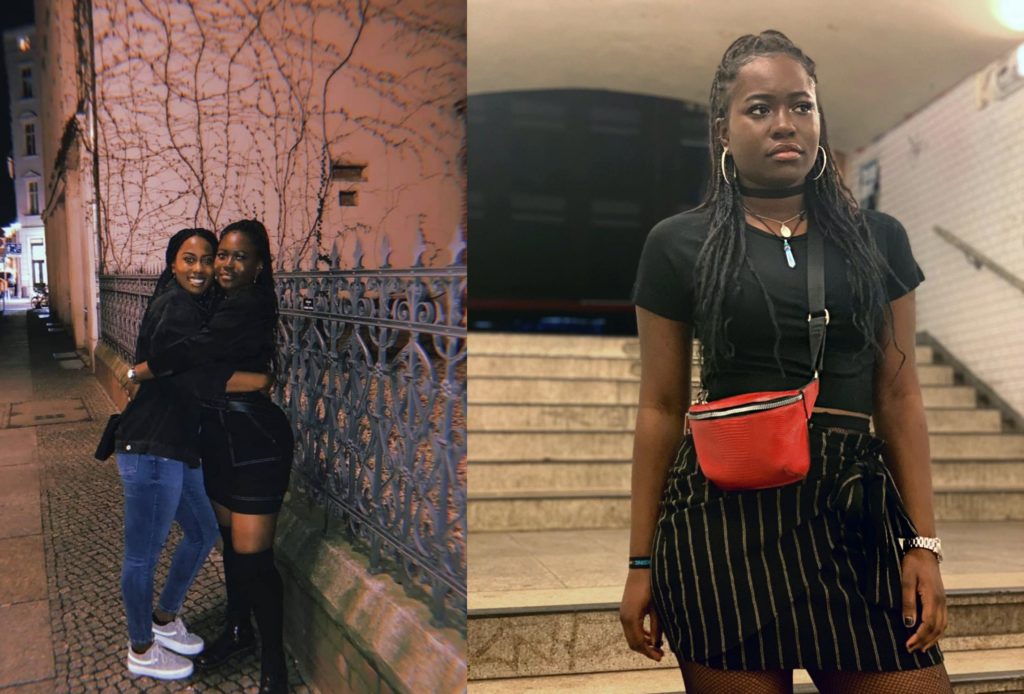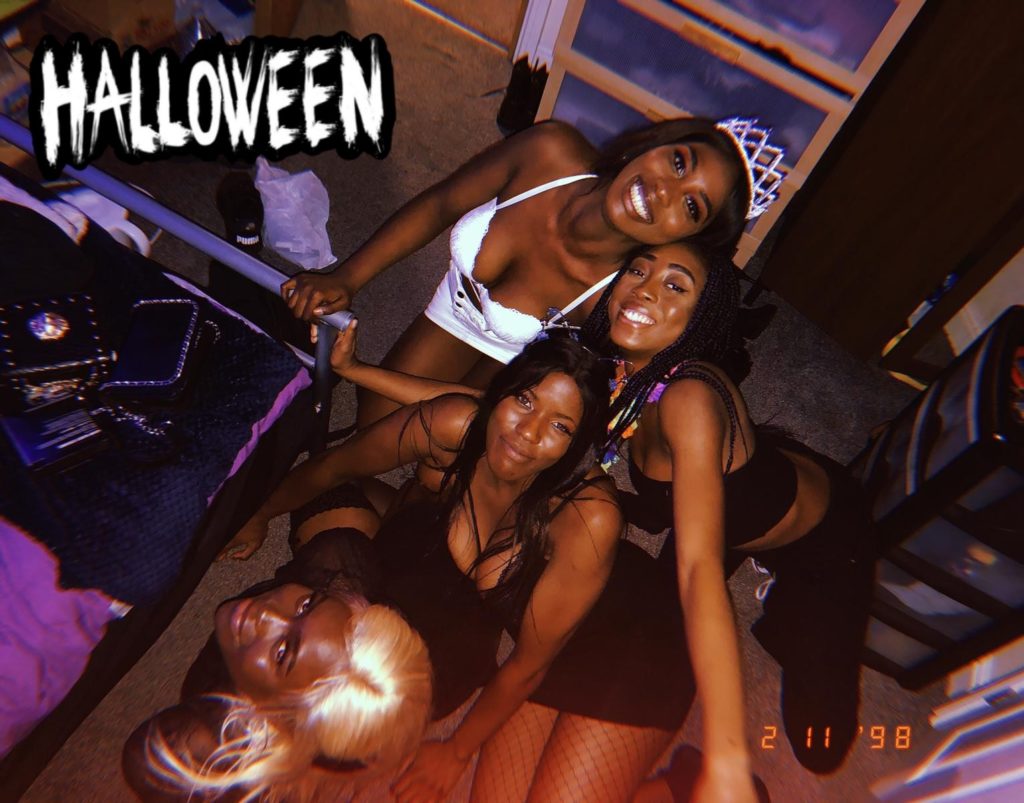
Being a dark skinned black woman in the UK is a whole other issue, here’s why
It’s time to unlearn your bias, folks
Being black in the western world is struggle in and of itself. But there are layers to it. Being black. Being a black woman. Being a dark-skinned black woman. Malcolm X once said: “The most disrespected woman in America is the black woman. The most un-protected person in America is the black woman. The most neglected woman in America is the black woman”. Maybe Malcolm X should have taken a visit to the UK. He would have found the same thing – we’re not exempt. Because the truth is, the black woman is the most disrespected, unprotected and neglected person in the world.
To be black in this world is dangerous. The darker our skin, the more masculine you are perceived to be, the more dangerous and aggressive you are perceived to be. That’s why black men are being shot. That’s why black women in need are being left to die. You think that we are other, that we are criminals or we are superhuman. It’s like none of you were even paying attention in “Get Out”. The demonisation, fetishisation, objectification, the illusion of superior strength.
The three biggest stereotypes of the black woman: “The Jezebel”, “The Sapphire” and the “Mammy”. We experience them in different ways. You need to unlearn them all. You can help, you can stop these harmful stereotypes being furthered. But first, you have to recognise the signs. This is what it’s like to be a dark skinned girl in the UK.

We are not the standard of beauty, in fact, we’re told we’re ugly
Many black people may remember the #lightskin vs #darkskin “debate”, if I dare to refer to such an atrocious shame on our community with such a polite word as “debate”. It’s a massacre of a mentality. I’ve watched beautiful dark skinned girls get degraded by people they called their friends. Taught they were inherently unattractive.
We have to teach ourselves that we are attractive despite the media and the people around us telling us otherwise. You have to understand that dark-skinned black girls aren’t even allowed to be viewed as attractive black women, let alone attractive women in general. The “black girl” in media is always racially ambiguous or white passing, even when she’s pictured with black parents. I remember white boys talking about their “black girlfriend” only to find out that she was actually unmistakably mixed race.
Black boys are not innocent in this matter either. We often find that the first people to throw us under the bus are our fellow brothers. They too live with internalised colourism and live with a subconscious desire to “correct” their lineage. We see rappers dating white and Hispanic women and at the same time, degrading dark skinned women. It’s up to all of us to correct the harmful stereotype that darker skinned black women are less attractive or less ideal in any way.

We’re hyper-sexualised
This is perhaps the most hilarious part about it. People want our features. Dark skin, cultural hairstyles, big lips, body shape etc. But we’re still unattractive. Perhaps it comes from the days of the slave trade, where black women were “bed wenches”. Raped by white masters. A black woman on the side for the master’s satisfaction, and a white woman to marry and be pictured with.
It is because of this that the stereotype “The Jezebel” was born. Black women are femme fatales. They are assumed to be sexual fiends, and the darker they are, the more shameless, the more promiscuous. Perhaps you’ve heard the slang term “fast” before. It’s a disgusting word used to describe young black girls, often used by middle aged men. It means that they look too “adult”, too “sexually mature”. Black girls are shamed for their bodies during puberty. Bestowed upon them is the blame because adult men found them attractive.
I had low self-esteem as a teenager, extremely uncomfortable in my own body because of my dark skin. There was quite a sharp jolt from my days being called ugly everyday, on top of other scarring words that to this day I struggle to repeat, to being hyper-sexualised. The jolt was around the time I turned 17. Suddenly my body was a topic of discussion. I was viewed as sexually attractive, but not dateable. I remember being propositioned because a “black girl” was the only race he hadn’t been with. I gag thinking about even now.

Old ladies love to poke us in the street
Yes. That little clip that played in your head. Exactly that. It often occurs with white women over 60. Middle aged white women partake in the strange ogling too but tend to know better than to touch.
About 80 per cent of the time, it happens when I’m standing in a queue in store, sometimes with friends. It always starts with “wow you’re so beautiful” following by the strange probing of their eyes. I feel like an object in a museum. And then the poking starts. The stroking. Sometimes they’ll ask how long my braids took to do. Followed by the same “wow I could never sit for that long”. Sometimes they’ll hold a braid. Sometimes they’ll pull. “Can you feel that?”. It’s like your dark skin makes you an alien.
I remember being deeply poked in that soft spot above my collarbone by a woman who looked about 50 as she got off the bus. She was complimenting my necklace. This time, it wasn’t about my race. Perhaps. But the familiarity of the situation turned my face to stone and I froze. My friends told me to chill out. I don’t think they understood. How could they, I suppose?

We are robbed of our safety and femininity
This is the part where you get to learn about the other two stereotypes. “The Sapphire” refers to the stereotype of the angry black woman. “The Mammy” is the stereotype that refers to older black women as caretakers of white people. This is perhaps the most important discussion. Combined. They create the “Strong Black Woman” stereotype.
Perhaps you’ve seen black women in media. An example would be Annalise Keating in “How To Get Away With Murder” or Bonnie Bennett in “The Vampire Diaries”. Black women are seen as stronger than most. Our purpose is to be the supporting character, to help our white protagonists succeed. We’re the best friend, our job is to make YOU better. We’re sassy and we have the best advice but don’t worry. When we’re in trouble, we can save ourselves. Bonnie Bennett is probably one of the most atrocious and most talked about examples in media. Her character died twice in the show and both times, she had to save herself. But this isn’t just TV. This is real life, in the United Kingdom.
I remember a story my mother told me. Many years ago, on a winter day, she was rushing to the office. She slipped and fell on the ice. A young woman, in London, on a busy street, slipped and fell on the ice. Everyone stopped and looked at her. No one offered a hand to help. So my mother got up, with heels on ice mind you, and picked herself up. If she was white, or perhaps a light-skinned woman, I believe someone would have offered a hand. But she was alone, as we so often are.

There was a 2016 study on medical students published in the ‘Proceedings of the National Academies of Science’. 40 per cent of medical students held the belief that black people’s skin was thicker than white people’s and therefore we had a higher pain tolerance. Students who believed that black people were less sensitive to pain than white people were less likely to treat a black person’s pain appropriately. In twenty. Six. Teen.
A 2012 publication on a meta-analysis of pain treatment showed black people were 22 per cent less likely to receive pain medication that white people. A 2019 study on racial bias in pain recognition showed that white participants recognised pain in white faces more than black faces. Black women are five times more likely to die in childbirth because of this. Black women in need less likely to receive medical help because of this.
Being black in the UK is far from easy, but the darker your skin the more you suffer. The more pronounced the stereotypes are. Unlearn them. Fight against them. And most importantly: stop fucking poking me.
Related stories recommended by this writer:
• Stop fighting for black culture and using the n-word, and start fighting for black rights
• The George Floyd petition is the most signed in history – sign it here
• Bradford and Warwick Unis investigate teenagers for photo mocking George Floyd





















